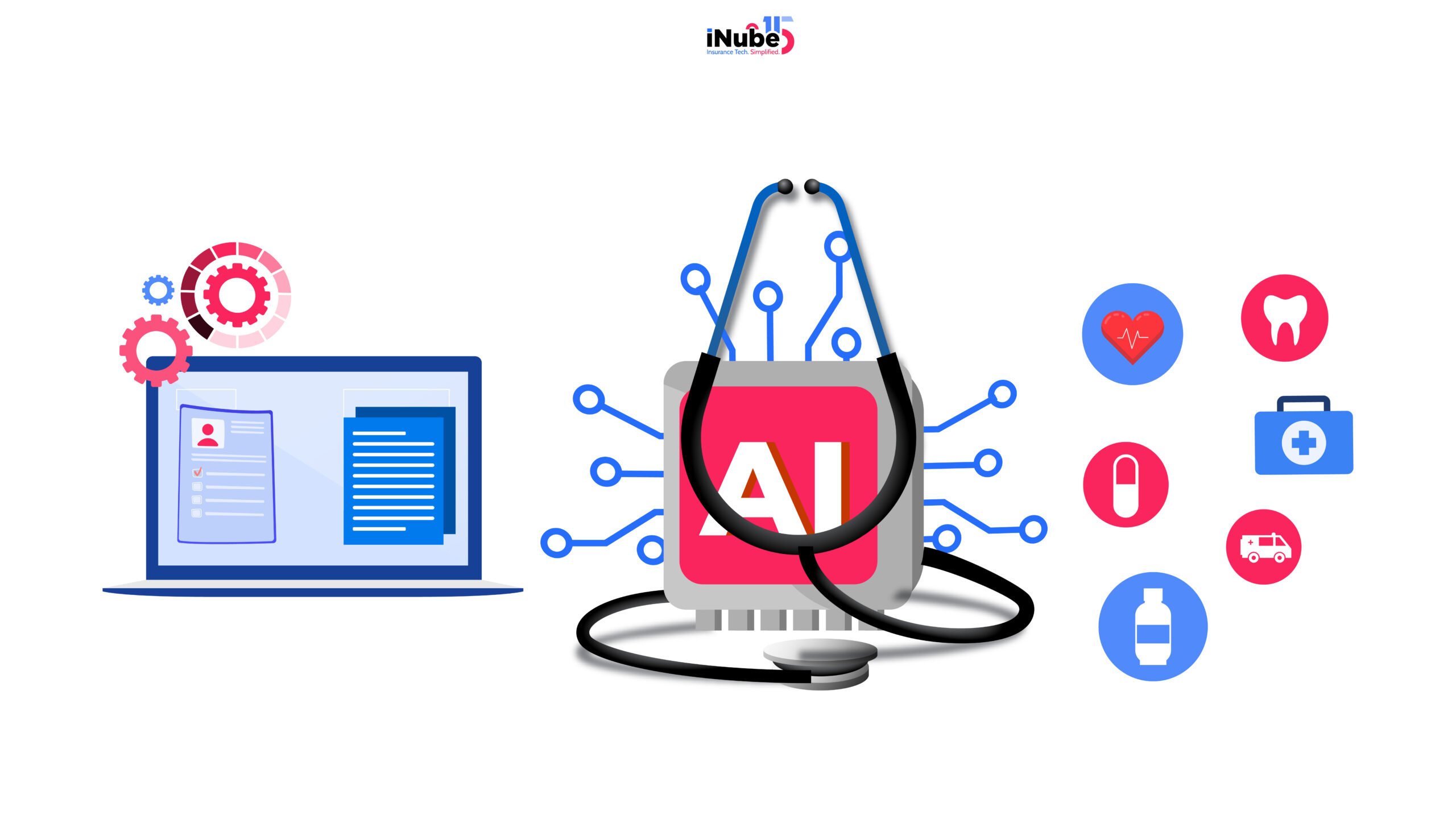For decades, Health Insurance has evolved incrementally- a digitized claims form here and a chatbot there, but the core model has essentially remained strikingly unchanged. The policies are being written once, priced on population risk, and get triggered only when something goes wrong.
Cut to today, a powerful disruptor has entered the scene. Artificial Intelligence in Healthcare is not just about making processes faster but also about challenging the very architecture of how a health insurance policy is conceived, priced, and also experienced.
This is exactly where the industry is standing at Crossroads.
Dive deeper to decode the answer.
From Reactive to Proactive- AI in Health Insurance is Changing the Core
Traditionally, Health insurance policies have been designed and built around risk pooling and post-incident claims. This is a linear model that is being disrupted by AI in Health insurance, which is shifting insurers from being passive risk managers to a proactive Health partner.
Here’s how AI in Health Insurance is shaping the Insurance landscape:
- Machine Learning Algorithms are being used to personalize coverage and dynamically adjust the benefits for matching the policyholder’s evolving health profile.
- Predictive analytics allows insurers to anticipate health risk scores, which are based on behavioral, wearable, and lifestyle data.
- NLP-powered chatbots streamline member interactions while cutting down the processing time and significantly improving the satisfaction scores.
Claims Transformation- From Weeks to Minutes
The few processes in Health Insurance are extremely reliant on manual intervention, including heavy paperwork, multiple verifications, opaque timelines, and the pain points are quite universal. However, with Artificial Intelligence in Healthcare, the insurers are moving toward near real-time claims adjudication.
An AI-enabled computer vision and OCR technology will automatically read the medical documents and invoices. The predictive analytics model will flag anomalies and possible fraud within seconds. This is the combination that will allow the insurers to settle the low complexity claims within just minutes, while the human teams will be focusing on the complex cases that essentially require judgment.
The result: the insurers will be getting to experience a reduced turnaround time, better fraud detection, and also an improved policyholder trust. These are the three factors that were once difficult to achieve.
Personalized Underwriting- Precision at Large
Underwriting is where risk essentially meets pricing, and for decades, it has heavily relied upon static questionnaires and actuarial tables. Now, the AI in Health Insurance is bringing real-time data into the mix. Wearables, electronic health records, and genomics data are empowering the underwriters to go beyond just generalized risk pools. AI in Healthcare can easily identify the early warning signs, predict the progression of chronic disease, and also help in crafting highly personalized Health insurance policies.
For insurers, this precision-driven underwriting will be helpful in leading to a lower loss ratio and also better portfolio predictability. For the policyholders, it essentially means much fairer premiums and also more relevant coverage.
How AI is Becoming the Catalyst in Policy Administration?
Most of the insurers who have initially embraced AI for operational efficiency are automating tasks, accelerating turnaround time, and reducing costs. However, the insurers who are thinking of going beyond the traditional means are seeing it as a strategic growth driver.
AI is enabling new distribution models, which include Embedded Health insurance, where personalized coverage is being offered at the point of care or purchase. It is significantly powering up Health ecosystems where insurers, hospitals, wellness providers, and the tech platforms are collaborating seamlessly to deliver value beyond claims.
As the AI tools become more sophisticated, the insurers will be able to explore newer revenue streams, right from preventive health programs to predictive care subscriptions, which will help in redefining the future of Health Insurance in the process.
Unlocking the Embedded and Contextual Insurance
With the rise of AI in Healthcare, the insurers will now be embedding highly personalized Health Insurance policies at crucial touch points in a customer’s health journey.
For instance:
- At the point of diagnosis, AI will recommend customized micro insurance products that will be based on the predicted treatment costs.
- Wellness apps that can offer dynamic coverage add-ons when users cross Health milestones.
- Retail and travel platforms will be able to bundle personalized Health Insurance benefits seamlessly during the checkout step.
This is the contextual distribution that will go far beyond the traditional agent-led or aggregator channels, allowing the insurers to seamlessly be present at the moment of need, and not just at the annual renewal cycles.
Enabling a Faster Product Innovation through Data Intelligence
AI’s ability to process massive volumes of structured as well as unstructured data will give the insurers deep market intelligence. By seamlessly identifying the unmet Health needs, emerging medical trends, or the shifting demographics, the insurers will be able to design the next generation of Health Insurance policies that essentially address the gaps way faster than the competitors.
One striking example of this is the way predictive analytics models can flag the rising prevalence of lifestyle diseases in specific geographies. The insurers will be able to roll out localized, preventive-first plans that align the product strategy with population health trends. This data-driven agility will position the insurers as innovators and not followers.
Building Digital Health Ecosystems
The future of Health Insurance is essentially ecosystem-driven. AI allows the insurers to go beyond policy administration and also become the orchestrators of a holistic health insurance ecosystem. By seamlessly integrating with hospitals, telemedicine platforms, pharmacies, and wellness providers, the insurers will be able to offer an end-to-end experience right from prevention to diagnosis, treatment, and recovery.
This ecosystem approach will not only drive engagement but will strengthen the customer’s stickiness, improve risk predictability, and open up the non-premium revenue opportunities, which include partnerships and also health subscriptions.
Conclusion
The impact of AI on Health Insurance goes far beyond the efficiency of gains. It’s truly redefining the way health insurance policies are conceived- right from shifting from static documents to living, adaptive contracts. With AI in Healthcare, the insurers will be able to design policies that adjust in real-time to a customer’s health data, lifestyle changes, and risk patterns.

Archismita Mukherjee
Insurance Content Analyst


